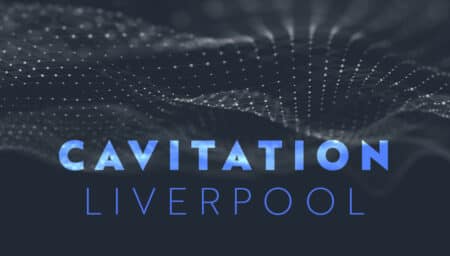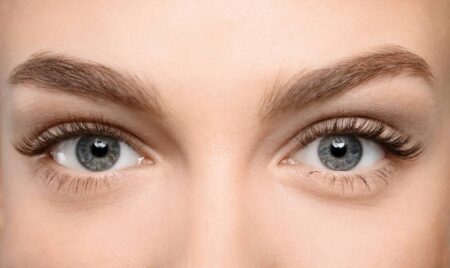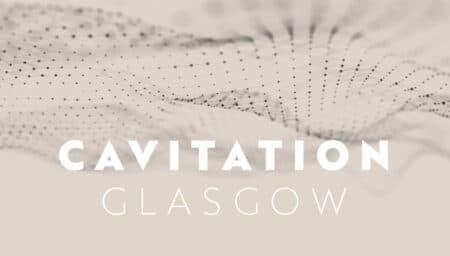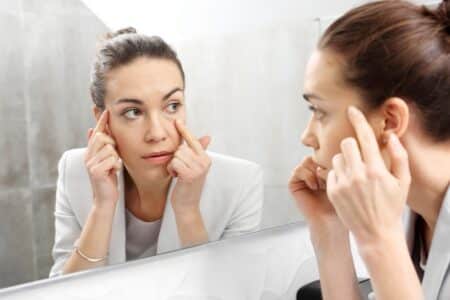Being happy – How does it work?
April 2021 | Reading time: 3 minutes

Table of Contents
Being happy is a difficult feat. Yet, often we find it is only the simplest thing that encourages a smile or a laugh. These are voluntary factors or events that occur in your life, for instance if your partner proposes, or if it is your birthday. Of course there are also voluntary factors which decrease happiness. The focus of this article however is on involuntary factors that affect happiness. This is where the science of your body comes in!
Oxytocin
One example of a scientific element that increases happiness is oxytocin, a hormone which the brain releases when people hug. Childbirth and breastfeeding release oxytocin, meaning that women experience higher levels of the hormone. However, the body also produces oxytocin when people hug. It is produced by the hypothalamus in the brain, and scientists link it to the formation of romantic relationships. As a result of this, oxytocin is commonly labelled the ‘love’ hormone.

Endorphins
It is well known that chemicals called endorphins boost your mood and make you feel good. The brain releases endorphins when you exercise, laugh or engage in sexual activity. These chemicals not only provide pain relief, but also create the sensation of pleasure and happiness. Endorphins could also help to fight mental illnesses such as depression by boosting self-esteem. However, there is no research to prove this as of yet, and the amount of endorphins released may vary from person to person.

Psychological Effects
Actions and behaviours also have psychological effects. Acts of altruism or helping others activate areas in the brain associated with pleasure and reward. The Framingham Heart Study in 2008 showed that emotions such as happiness transfer from one person to another through mimicking behaviours and expressions. The researchers also examined social networks, for example families, and concluded that ‘happy people tend to be connected to one another.’ Then simply the presence of a happy person influences your personal sense of happiness.

Some psychologists and scientists believe positive, happy relationships and friendships ward off illness, as the brain controls mechanisms linked to illnesses. Furthermore, researchers believe that friendship has a much bigger impact on happiness than factors such as money. In 2006, Professor Oswald at Warwick University estimated that the sum of £50,000 makes up the happiness you lose when you don’t have friends. Read more about this topic here.
A lot of these scientific and involuntary responses to happiness involve voluntary action such as partaking in exercise or making friends. Yet, the body helps you by ensuring that you get the best and most positive feeling out of the experience. Aren’t human beings clever? To reach the height of happiness, you and your body must work together. As long as you do your bit and put in the effort, your body and brain delivers the rest!
Feeling healthy can also have positive impacts on our emotional wellbeing. Our Lymphatic Vacuum Massage is ideal for this, as it encourages the flow of the lymphatic system which flushes toxins out of the body. It can also help with blotchiness of the skin and provide relief from pain, making you feel better inside and out!
Related Articles

Miscellaneous Musings: A Delightful Dose of Randomness
The Beauty of Randomness In a world that often craves structure and order, there's something deliciously refreshing about embracing the...

Ultrasound Cavitation Liverpool
Our revolutionary Ultrasound Cavitation treatment is now available at VIVO Body Studio Liverpool! This treatment produces noticeable reductions in fat from...

Top 10 Advent Calendars of 2018
It is time to begin the countdown to Christmas! We all know what that means - we must get our...

How Can A Massage Benefit My Health?
A massage is generally considered as a treat that releases tension in the muscles and enables you to relax. However,...

Can Clothing Affect Our Health?
In modern society, people are constantly buying new clothes. Branded clothing is extremely popular and also rather expensive. Apart from...

How Does Shockwave Therapy Help The Body?
Shockwave therapy is a non-invasive and safe treatment for several ailments. It works by emitting waves into certain parts of...

Embracing the Miscellaneous: Finding Joy in Life’s Unexpected Moments
The Magic of the MiscellaneousIn a world that often craves order and predictability, the miscellaneous offers a refreshing dose of...

Info: Plasma Eye Lift Glasgow
VIVO Body Studio Glasgow now offers the Plasma Eye Lift, one of the most advanced cosmetic treatments available! What is...

How to Stop the First Signs of Ageing Naturally
Ageing is a natural process that affects all beings. The first wrinkles and fine lines appear around the age of...

Ultrasound Cavitation Glasgow
Ultrasound Cavitation Fat Reduction at VIVO Body Studio Glasgow Non-invasive and pain free, ultrasound cavitation is a popular new fat...

How Lack of Sleep Affects Your Skin
Experts recommend that adults should have at least 7 to 8 hours sleep a night. Often this is not as...

Is Too Much Exercise Bad for the Body?
Exercise is perhaps the best way to get fit and lose weight in a healthy and natural way. However, too...
Happy Customers
16,759 Reviews and CountingGemma was friendly and professional, looked after me really well.
During the consultation everything was explained to me clearly.
I will come back soon for more treatments.
I would recommend to anyone who is thinking of booking an appointment. Very friendly and attentive staff.
I had the HIFU neck and jaw treatment. And I have booked to go again. I can’t wait to see the results.
Lovely lady,very good at explaining the process, will definatley be going back.
Lovely experience
And did a great job
Very happy
 close
close



